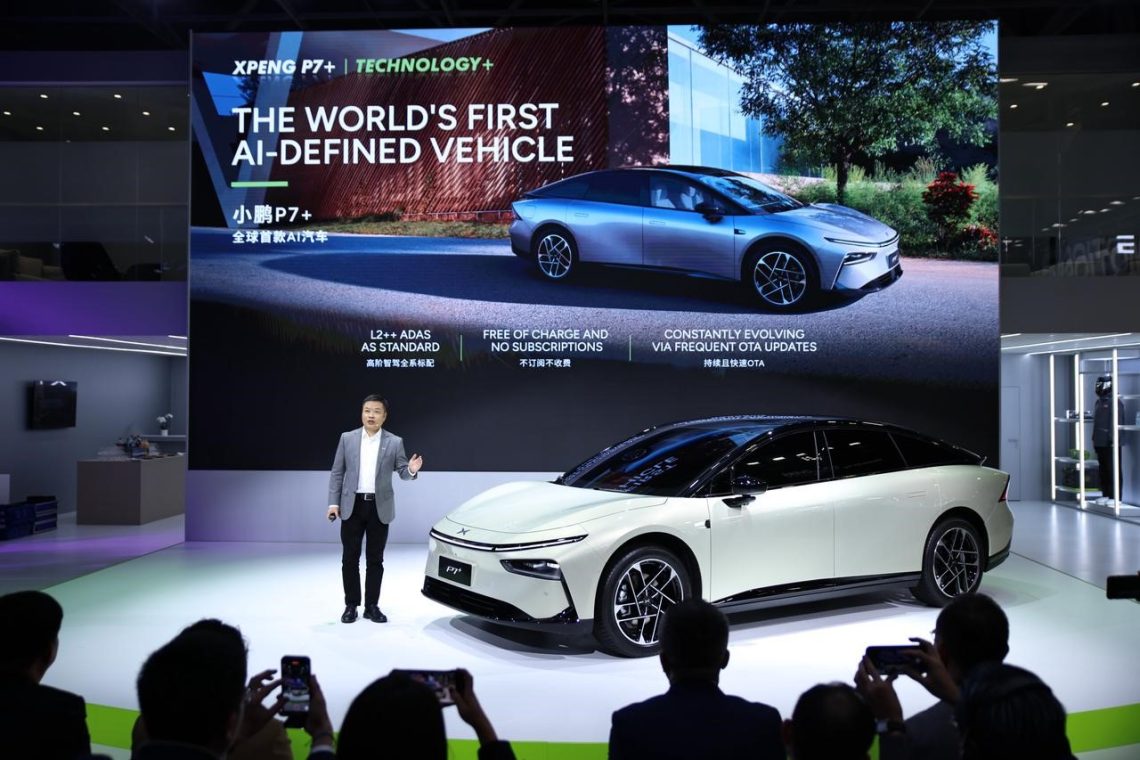Xpeng has just concluded its 2024 AI Day event in Guangzhou, showcasing advancements that promise to reshape business landscapes. With a focus on integrating cutting-edge technology across various sectors, Xpeng’s announcements provide valuable insights into how AI developments can enhance business operations. At the forefront is Xpeng’s new Kunpeng Super Electric System, an extended-range hybrid system that addresses significant concerns for businesses in the automotive industry. Vehicles equipped with this system boast a combined range of up to 1,400 kilometers, significantly reducing range anxiety and operational costs for fleet managers. The system’s rapid charging capability—from 10% to 80% in 12 minutes—ensures minimal downtime, enhancing efficiency and productivity. Xpeng’s introduction of the Turing AI chip marks a pivotal step in optimizing AI integration across multiple domains. This chip, tailored for large AI models, supports up to 30 billion parameters, enabling smarter autonomous driving solutions. For businesses, this means improved data analysis and decision-making capabilities, facilitating predictive maintenance and reducing equipment downtime. The chip’s validation, with over 2,791 feature tests completed in 40 days, underscores its potential for rapid deployment in AI-driven applications. The Canghai Platform, an AI auto neural system designed for L4 autonomous driving, further illustrates Xpeng’s commitment to innovation. With enhanced communication bandwidth and reduced power consumption, this platform promises to transform transportation logistics and supply chain management by introducing more efficient robotaxis. These advancements could lead to significant cost savings and improved service delivery for companies relying on transportation. Xpeng’s unveiling of its humanoid robot, Iron, highlights the potential for AI in workforce augmentation. Iron’s ability to perform complex tasks and its deployment in factories and offices can revolutionize industries by automating repetitive tasks and freeing up human resources for strategic roles. This development is particularly relevant for companies aiming to streamline operations and enhance productivity through AI. While the opportunities are vast, businesses must consider potential challenges such as the initial cost of implementation and the need for skilled personnel to manage and maintain these AI systems. However, the benefits—ranging from increased efficiency to enhanced customer experiences—can outweigh these challenges, presenting a compelling case for AI adoption. In conclusion, Xpeng’s AI advances offer transformative potential for businesses looking to leverage technology for improved profitability and operational efficiency. By embracing these innovations, companies can position themselves at the forefront of their industries, ready to capitalize on the opportunities AI presents.
- AI Products
For startups
For Professionals
- AI Services
For corporations
For Goverments
For Professionals
- Consulting
For corporations
For Goverments
For Professionals
- About
- Cases
- AI Products
For startups
For Professionals
- AI Services
For corporations
For Goverments
For Professionals
- Consulting
For corporations
For Goverments
For Professionals
- About
- Cases

